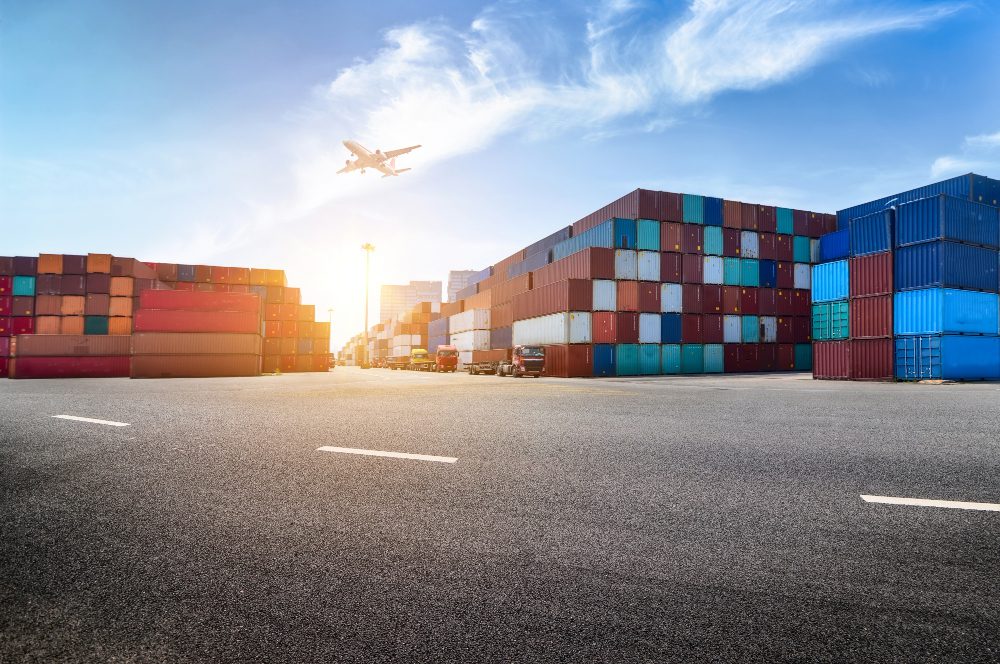Logistics is an integral part of transportation and supply chain management in companies. A recent report by Cision states that the global logistics market will expand to USD 15.5 trillion by 2023. Unfortunately, not all companies are ready to grab profits for various reasons, including inefficient practices, cyber-attacks, and unnecessary expenses.
Blockchain offers logistic businesses by helping them organize operations and eliminate supply chain barriers. The World Economic Forum says that blockchain integration enables companies to increase revenues by 15%.?

The following points explain the benefits of Blockchain in logistics in greater detail:
Blockchain increases online security significantly.
Today, most businesses use ERP systems to automate and manage business processes. Centralized systems are incredibly efficient as they allow business stakeholders to share critical information instantly. They also act as a single source of truth and enable everyone to access data through graphs and pie charts. But a significant disadvantage of centralized systems is that if they are hacked, the entire business is disrupted. Blockchain networks use sophisticated cryptographic techniques that restrict hackers from modifying or deleting information stored in the chain. It?s nearly impossible to alter the data chain, ensuring that information remains secure from external cyber-attacks.
Blockchain increases the efficiency of logistic systems.
Blockchain technology significantly increases the efficiency of logistics systems by introducing real-time tracking of goods. Companies can track the following parameters:
- The incoming of raw materials from the vendor?s warehouse to the company?s inventory.
- The transformation of raw materials into finished products.
- The exact location of finished goods in the company?s warehouse.
- Storing the details mentioned in the packaging material.
- Tracking the delivery of finished goods to the end-user.
Blockchain systems also reduce the bureaucracy involved in administrative processes, such as:
- Facilitating ownership changes between retailers, manufacturers, and buyers.
- Eliminating paperwork between multiple parties required for financial transactions.
- Adhering to rules and regulations laid by governments and international watchdogs.
Blockchain boosts transparency in systems.
Blockchain significantly increases the transparency in business systems by recording various data points, such as:
- Who made the changes?
- What changes were made?
- When were the changes made?
- Why were the changes made?
The best thing is that each party has the exact version of the ledger updated in real-time. Therefore, there is no possibility of data tampering or false information.
Blockchain technology facilitates smart contracts that can be altered based on market conditions. For example, during the first phase of the Covid-19 pandemic, businesses struggled to adhere to the terms and conditions mentioned in the contracts. Smart contracts allowed different parties to modify the terms and introduce new clauses that could be conveniently worked out.
The best part about smart contracts is that the clauses cannot be reconstructed without prior confirmation of the involved parties. So, businesses need not worry about any scams.
Blockchain help manage assets and inventories in real-time.
Blockchain systems can be integrated with the Internet of Things (IoT), Web Application and cloud-computing technologies that record the real-time location of finished goods. Tiny digital sensors can be attached to goods to monitor their journey across the entire supply chain from origin to destination. This way, companies can bring transparency to the system and shorten delivery times.
Blockchain can store an immense amount of data about a particular object, such as:
a. What are the ingredients of the finished product?
b. At what places had the final product been stored in the past?
c. For how long the finished product has been stored?
d. What is the expiry date of the finished product, and for how long is it fit to be used?
Moreover, Blockchain also reduces the likelihood of lost products, lowers the cases of improper storage, and eliminates other factors that could reduce the overall revenue.
Conclusion
The primary motive of the logistics industry is goods distribution across various geographical locations in the shortest time possible. But it faces several challenges, such as creating and maintaining paperwork and delivering finished goods safely.
Blockchain and other industry 4.0 technologies like IoT and AI can help cut operational costs, boost transparency, and streamline asset management.
If you are operating in this space, you should integrate your current ERP system with blockchain capabilities to get a competitive edge and become an industry leader.
Author:
Nishant Joshi likes to read and write on technologies that form the bedrock of modern-day and age like ERP, CRM, Web Apps, machine learning, data science, AI, and robotics. His expertise in content marketing has helped grow countless business opportunities. Nishant works for Sage Software Solutions Pvt. Ltd., a leading provider of Business Management Software to small and mid-sized businesses in India.

As the editor of the blog, She curate insightful content that sparks curiosity and fosters learning. With a passion for storytelling and a keen eye for detail, she strive to bring diverse perspectives and engaging narratives to readers, ensuring every piece informs, inspires, and enriches.









